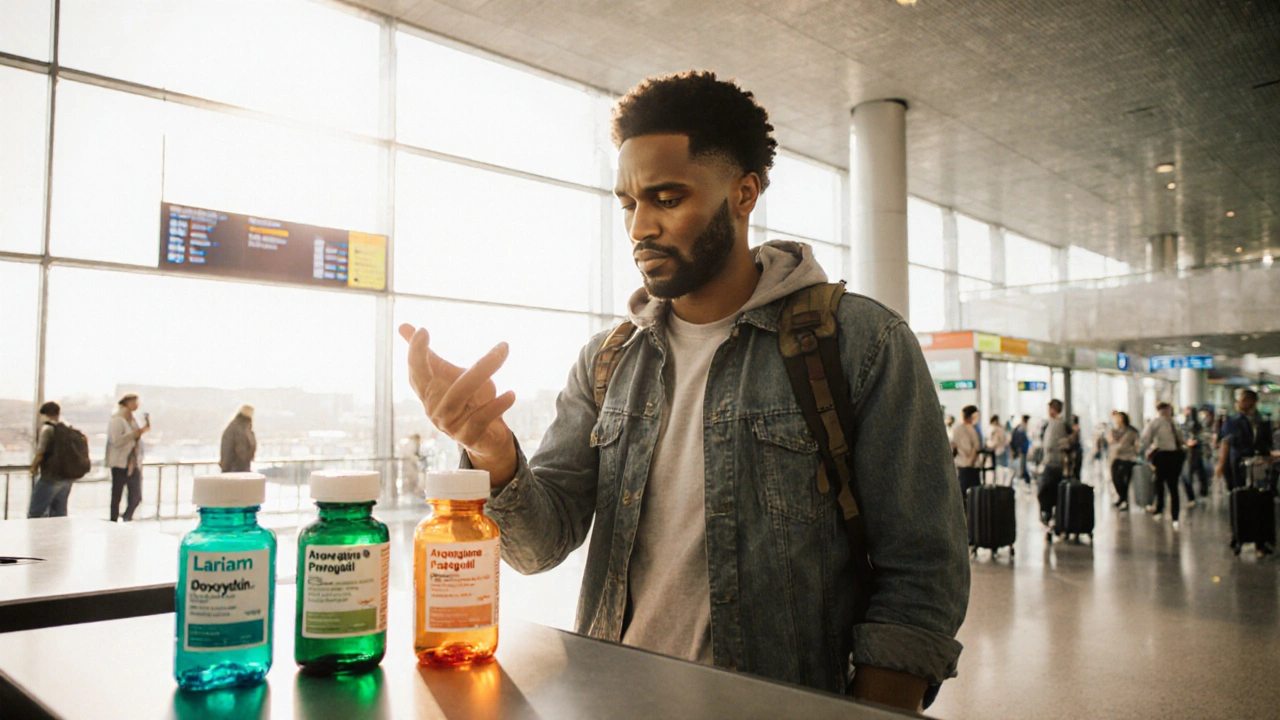A detailed side‑by‑side look at Lariam (Mefloquine) and its main alternatives. Learn about effectiveness, safety, dosing, cost and how to pick the right malaria prophylaxis for your travel.
Mefloquine Alternatives: Safer Choices for Malaria Prevention
If you’ve heard about mefloquine’s nasty side effects, you’re not alone. Many families and travelers look for a drug that protects against malaria without causing vivid dreams, anxiety, or balance problems. The good news is there are several proven alternatives that work well for kids and adults alike. Below we break down the most common options, how they work, and what you need to know before you pack your meds.
Top Alternatives and How They Work
Atovaquone‑Proguanil (Malarone) – This combo hits the parasite at two points in its life cycle, making resistance rare. It’s taken once a day, starts three days before you enter a malaria zone, and ends a week after you leave. Most kids 5 kg and up tolerate it well, with stomach upset being the most common complaint.
Doxycycline – A broad‑spectrum antibiotic that also blocks malaria parasites. It’s cheap and works in many parts of the world, but you have to take it twice daily and keep it away from the sun because it can make skin photosensitive. Children under 8 years aren’t usually given doxycycline unless the benefit outweighs the risk.
Chloroquine – Once the go‑to drug, chloroquine still works in places where the parasite hasn’t become resistant (e.g., parts of Central America and the Caribbean). It’s taken once a week after a loading dose, and side effects are mild for most people. Always check resistance maps before you rely on it.
Artemisinin‑Based Combination Therapies (ACTs) – These are first‑line treatments for confirmed malaria, but some travelers also use them for prophylaxis in high‑risk areas. They act fast and are generally well‑tolerated, though they require a short course rather than daily dosing.
Primaquine – The only drug that clears dormant liver forms of Plasmodium vivax and ovale. It’s great for travelers heading to areas where those species are common. Testing for G6PD deficiency is a must, because primaquine can cause severe anemia in deficient people.
Choosing the Right Option for Your Child
First, check the malaria resistance map for your destination. If the area still responds to chloroquine, it’s often the simplest choice. If you’re heading to Southeast Asia or Africa, Malarone or doxycycline are usually recommended.
Next, think about your child’s age and weight. Atovaquone‑proguanil can be used in kids as light as 5 kg, but you’ll need a pediatric formulation or tablet split carefully. Doxycycline isn’t advised for kids under 8 years unless there’s no other option.
Consider side‑effect profiles. If your child has a history of anxiety or sleep issues, skipping mefloquine is wise. Malarone may cause mild nausea, doxycycline can cause sun‑sensitivity, and chloroquine may lead to itching.
Finally, talk to a pediatrician or travel clinic. They can confirm the correct dose, check for drug interactions (especially if your child takes other meds), and give you a written plan.
Bottom line: you have plenty of safe, effective alternatives to mefloquine. Pick the one that matches your travel route, your child’s age, and any health concerns, and you’ll stay protected without the unwanted side effects.
